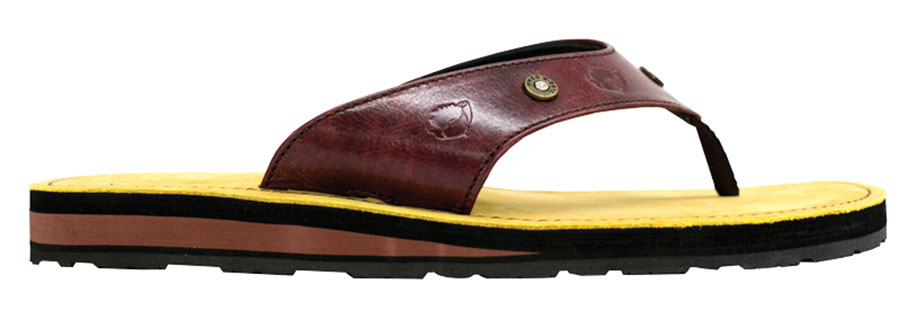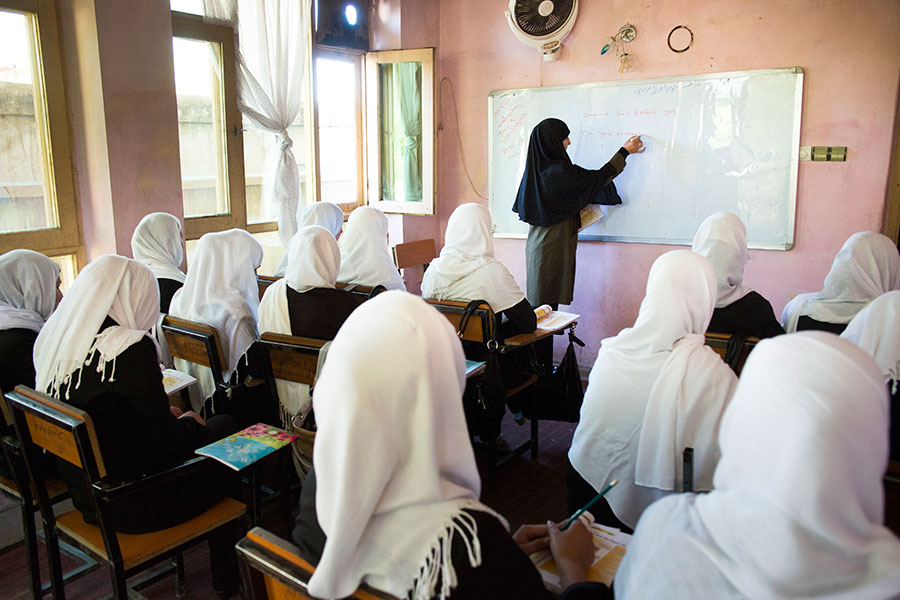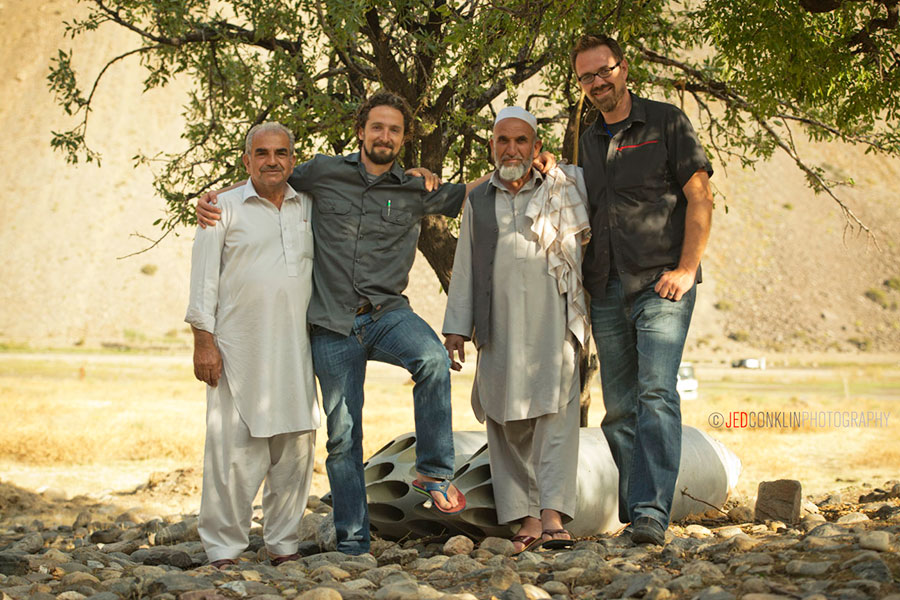- An elite, highly-trained soldier decides that jumping from planes and blowing stuff up is not how change should happen.
- He realizes economic activity is the only force that will eliminate poverty and especially discrimination towards girls and women.
- Combat Flip Flops is launched, offering jobs to locals, money for education and cool fashion accessories made from waste military products.
Matthew Griffin’s (pictured above) idea on the global war on terror ended within 15 minutes of arriving in Afghanistan. As a member of the 75th Ranger Regiment, one of the most elite infantry units in the world, he was expected to go further, faster and harder than any other unit. What he never expected was a change in how he viewed the war and that he’d coin the slogan: “Business, Not Bullets – flipping the view on how wars are won.” He also realized that Afghans wanted the same thing as many of us – job security.
“After serving multiple deployments in Afghanistan and Iraq, I knew I wanted to do more for the people living in these nations,” says Griffin. “The idea was simple: create an environment that gives people living in post-conflict nations the opportunity to peacefully rebuild their economy by manufacturing badass products.”
The farm boy from Iowa discovered his first badass product while visiting a military boot factory in Kabul. He was amazed to see a pair of flip flops being made from the soles of combat boots – two slits made in a rubber base with a leather thong added. Afghan soldiers had found it cumbersome to remove their boots five times a day for prayers and an ingenious manufacturer had come up with “combat lite” versions. It was exactly what Griffin had been waiting for. He registered the domain CombatFlipFlops.com within the hour, called fellow soldier Donald Lee to ask if he wanted to go into business, and then called his wife to tell her he was starting a company.
“The U.S. poured trillions of dollars into this country, we might as well have a cool commercial effort to sustain it once the war ends,” says Griffin. Many factories were established in Afghanistan by coalition countries to supply police and soldiers with military gear. Griffin knew that once the war ended, these factories would disappear too. By continuing to produce goods with the same locals, but for peaceful and fashionable reasons appealed to Griffin. Combat Flip Flops launched under a slogan many marketing experts would cringe at, yet for this soldier-turned-entrepreneur it’s perfect: “Bad for running, worse for fighting.”
They set up a really cheesy website and people loved the idea. They sold 1,500 pairs online in first few weeks, despite not having made a single pair.
What does a soldier know about business you’re likely to ask? Surprisingly, Griffin hadn’t only been squinting down the sights of a gun barrel, but also taking the economic lessons of war to heart. “Everywhere I went in Iraq and Afghanistan I saw conditions that were ripe for fundamentalist, extremist groups to take over,” says Griffin. What he saw was the enemy providing jobs.
“They’d say to a poor, rural farmer, ‘Here’s $50 and here’s a bomb. Go plant it.’ Someone with no food is going to take the money and risk planting that bomb to feed his family.”
Griffin decided that an economic strategy was better than a military strategy. “I saw that small businesses were creating sustainable change in some areas,” he says. “Whether it was a soda or SIM card stand, there were families that invested together, bought businesses, cleaned up their street corners and ran businesses.”
 A tough childhood, divorced parents and harsh physiological examinations to enter the Special Forces had Griffin thinking he had no empathy. Watching young girls playing happily with nothing but a stick in the middle of a desolate Afghan mountain range changed all that. Witnessing the poverty and oppression of girls and women in these harsh environments made him realize that empathy was the one thing missing in his life. He decided to change and create economic opportunities for impoverished women.
A tough childhood, divorced parents and harsh physiological examinations to enter the Special Forces had Griffin thinking he had no empathy. Watching young girls playing happily with nothing but a stick in the middle of a desolate Afghan mountain range changed all that. Witnessing the poverty and oppression of girls and women in these harsh environments made him realize that empathy was the one thing missing in his life. He decided to change and create economic opportunities for impoverished women.
Flip flops were just the start. Griffin and his team had taken a product that people in nearly every country wear, and made it into a weapon for change. Production is now in Bogota, Colombia, providing jobs and investing in people who desperately need it. Their Claymore Bag’s flip the script on traditional weapons of war. Instead of carrying bombs, the bags carry iPad’s and laptops. Their Cover and Concealment sarongs are handmade in Afghanistan by local women and each sale puts an Afghan girl into secondary school for a week. The Peacemaker Bangle and Coinwrap are made in Laos – from bombs. Each bracelet sold clears three square meters of Unexploded Ordnance from a region rocked by long-term war.
Griffin is happy that proceeds are going towards educating girls. “If you want to kill radicalism, you can do it with education,” he says. “If you educate women, things will get better, because if you educate a mother, you educate a family and an educated mother is not going to let her child get radicalized.” So far Combat Flip Flops has donated enough money from sales to support the equivalent of 12.7 years of girls secondary education in Afghanistan and funded the clearing of 657 square meters of unexploded ordinance.
“I thought joining the military would be the most beneficial way to help people,“ says Griffin. I used to think that jumping out of airplanes and blowing things up was the best way to support stability in these areas, but after going to Afghanistan and seeing what I saw, enabling people to stand on their own feet is the best course of action for everyone.” Yet despite the change in tactics Griffin is still an adventurer at heart. “Unapologetically, we make cool shit in dangerous places,” he says with a grin.







































